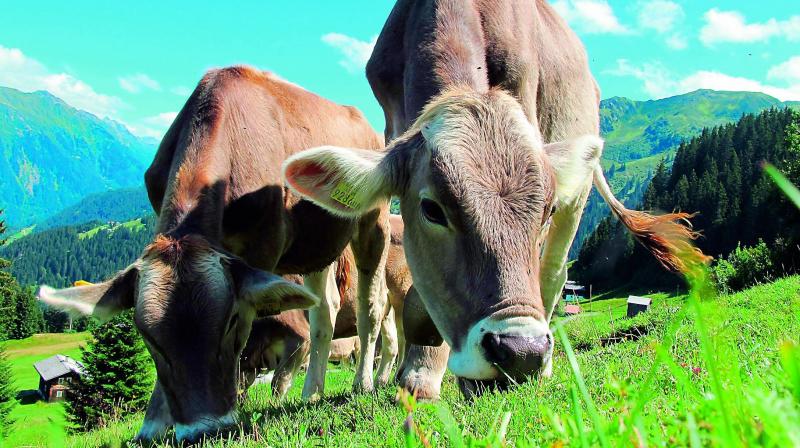Cow farts cause global warming
Asparagopsis taxiformis, a red seaweed does aid in digestion as other seaweeds do but has an additional gas-reducing function

Did you know that a cow’s belch consists of methane? This potent greenhouse gas that has a climate change impact that is 25 times greater than carbon dioxide. Cattle also pollutes the groundwater with their excrement. With about 1.5 billion cattle on Earth, that’s a lot of gas! That’s why scientists thought, altering a cow’s diet might help.
Earlier this year, researchers from Denmark’s Aarhus University launched a four-year study to see if adding a potent type of Greek oregano to the cow feed reduced methane emissions based on an earlier research led by Penn State scientists that suggested that oregano could cut cows’ methane emissions up to 40 per cent.
Now, scientists on the agriculture and food team at Australia’s Commonwealth Scientific and Industrial Research Organisation (CSIRO) have found even more promising results from seaweed.
It showed that introducing seaweed, Asparagopsis taxiformis, to livestock feed reduced the methane production in sheep by more than 80 per cent. And when they experimented with artificial cow stomachs, even higher potential reductions were recorded.
Apparently seaweed has been fed to cattle since farming began as cows would graze on the ones washed up on beaches. Since it’s a natural food source, there shouldn’t be any harm.
Since Methane only persists in the atmosphere for about 10 years, as opposed to carbon dioxide’s hundreds of years, cutting how down on methane production through cows could help immediately address the climate change impacts.
Kinley was keen on finding if there was a certain seaweed that might cut methane to a large extent, that’s when he reached out to CISRO who later found that Asparagopsis taxiformis, a red seaweed does the trick. It aids digestion as other seaweeds do, but has an additional gas-reducing function.
Next up is a health protocol to establish if seaweed is safe for long-term consumption; and the minimum amount of seaweed supplementation that is needed for methane reduction.
Approximately 25 tons of seaweed is needed to do a feedlot trial with 1000 animals. And the extra benefit would be that growing seaweed can help clean wastewater and remove runoff nutrients and carbon dioxide near reefs.
— Source: www.mentalfloss.com

